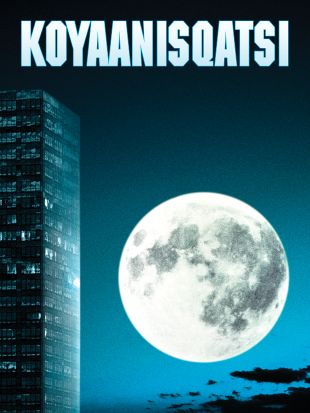
An idea that rejects many of the foundations of daily civilized life is radical, at the very least, and certainly hard to swallow. When a film can serve such an idea with a spoonful of sugar, even the most radical and unnerving thoughts can become more accepted. Godfrey Reggio's Koyaanisqatsi is visual music, blurring the defining lines between narrative and non-narrative filmmaking. While there is no plot and no dialogue, there is clearly a story. The brilliant cinematography of Koyaanisqatsi is woven into a magic rhythm of images, sweeping the viewer into the essence of the work of art. Once swept up, the viewer feels the ache of technological advancement in a formerly pure world, and the beauty of the film is so piercing that to argue the severity of its story would surely be an injustice to the work of art itself. Natural ebbs and flows like wind and water are juxtaposed to the flow of traffic, and of people cramming into an elevator. Panoramic deserts contrast the jigsaw puzzle of a city landscape from a god's-eye-view. A sense of peace and stillness is presented in images of nature, and then opposed with images of tumult and ill health on city streets. The film asserts its conviction with such passionate fervor, that, regardless of intellectual arguments against it, one cannot help but fall victim to its emotion. Additionally, the accompanying music (composed by Philip Glass) is integrated flawlessly, always adding depth to the experience of the film, and standing on its own as a powerful composition. Whatever stance Koyaanisqatsi takes, its presentation mesmerizes the viewer into hearing out its argument, sweetening the taste of even the worst medicine.
